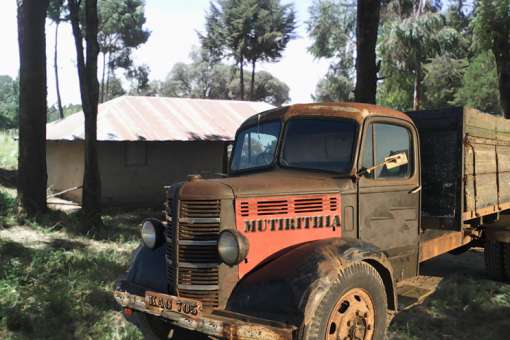The circumstances above taught me a very worthy lesson. The town people we envied in OlKalou were really beneath us economically, and we were their envy but we didn’t know it then, because we were so wrapped up in our Inferiority Complex.
Similary, the urban students we considered rich, actually came from simple struggling working families. Their parents were teachers, tailors, clerks, market vendors, nurses, factory workers, kiosk owners, all struggling to raise their families in the city and other urban centers.
Most of those students we envied were born and raised in simple City Council Estates in Nairobi. Estates like Bahati, Shauri Moyo, Kariokor and others. The ones from Thika came from Ziwani, Majengo and Starehe Estates, born and raised in single rooms. They spoke good English and Swahili because that was their only mode of communication in the city and town schools they attended with children and teachers from various ethnic tribes and races.
Most had TV sets in their homes because that is an urban trend. Parents who can barely afford a TV will buy one on hire purchase just to keep their children busy and stop them from going to neighbors houses to watch TV. The few who dont have one in their houses go to watch TV in their Community Centers, local hotels and food kiosks or their friends houses. That is how the urban students knew all the TV Shows, not because they were from wealthy families like we all thought.
Also, with nothing much to do in their confined living spaces, urban kids venture outdoors ending up in places where sports are played. Places like the YMCA, Colleges or local stadiums.
Their fashion looked better because they had better exposure, and more access to things than we did back in our rural towns. They shopped in big, well stocked shops, having access to the latest fashions. They also had plenty of mitumba vendors giving them variety at cheaper prices, while our clothes were made by a middle aged tailor who ran his business on a shop veranda. My ankle length Mukurino dresses made in similar design as my mothers’ clothes, probably costed more than the “fancy” modern outfits worn by the urban students who purchased their clothes secondhand from mitumba. It is just the design of my clothes that made them look unappealing, otherwise they were made new from quality fabric.
You wonder how my dresses were made by Ng’atho. Well, it was a full length cotton dress, gathers at the waistline, buttons at the back, two fabric straps (michibi) on either side of the waist which I tied into a bow at the back. That was the only difference between a girls’ dress design and her mothers’. The girls tied their michibi at the back, while mothers tied a belt with a buckle around their waists.
For the urban students, most of their parents were younger and had an education. Their children were born in hospitals and they were issued birth certificates. Both the parents and their kids were familiar with the concept of celebrating birthdays because that was an urban trend regardless of economic status. That is why they naturally continued celebrating their birthdays especially now that they were away in boarding school, keeping up with their family traditions. Maybe the cakes they brought were homemade, but to us, it was an “expensive” luxury item only affordable to very wealthy people.
That is what our Inferiority Complex screamed at us, Shau people, concluding that those students were better than us. They had plenty of money and they led charmed lives in the big cities and towns. When I look back, we were more advantaged than them but we did not see it that way. We saw what they had and concluded we were disadvantaged. They never told us they were wealthy. They never told us they were better than us, stoking our inferiority. We did that to ourselves. We beat ourselves up, minimizing ourselves and feeling inadequate in their presence while elevating them to levels they did not belong. They were not aware of how we felt. They were going about their business being themselves, while we were busy getting intimidated by the very labels we put on them without their knowledge.
That is what Inferiority Complex does to you. Nobody tells you you are less than, but you tell it to yourself so loud you can no longer hear or see anything positive about yourself or the wonderful blessings God has given you already.



